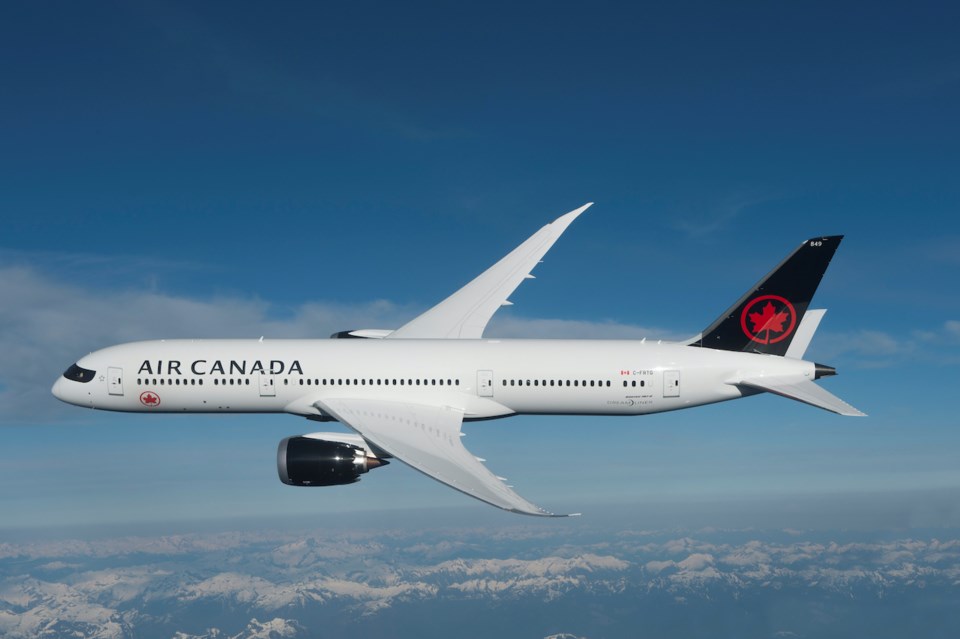A Squamish-based firm is teaming up with Air Canada in an attempt to make airplanes more environmentally friendly.
Carbon Engineering, announced in a news release on Nov. 10 that it and Air Canada have signed a memorandum of understanding to identify technology that can advance the decarbonization of airplanes.
Carbon Engineering has developed technology that can remove CO2 from the atmosphere, which will help eliminate CO2 emissions. Furthermore, the firm has been able to take the captured CO2 and convert it into low-carbon fuel.
“Our relationship with Carbon Engineering, spanning three years, has enabled us to learn about their emerging technology advances, [sustainable aviation fuel] production and ecosystem building efforts,” said Amos Kazzaz, executive vice president and CFO of Air Canada in the release.
“We are pleased to officially become the first Canadian airline to work with CE to advance new, transformational technologies towards the commercial viability of SAFs and carbon removal, two significant components to building a long-term, sustainable, global aviation industry.”“Addressing emissions within the aviation industry is expected to be some of the most challenging, yet important, work in the years to come,” said Steve Oldham, CEO of Carbon Engineering. “At CE, supporting aviation decarbonization is a key component of our commercialization plans and we’re thrilled to be working with a major airline, like Air Canada, to collaborate on ways to accelerate the potential of DAC-based solutions in supporting the aviation energy transition.”
Air Canada aims to reduce its greenhouse gas emissions to net-zero by 2050. Because of that, Air Canada has looked toward a variety of alternative fuel and carbon reduction solutions.was founded in 2009 and has been capturing CO2 from the atmosphere since 2015. Currently, a is being constructed in West Texas and a near Merritt, B.C. The B.C. facility is expected to start construction in 2023 and be operational in 2026.



